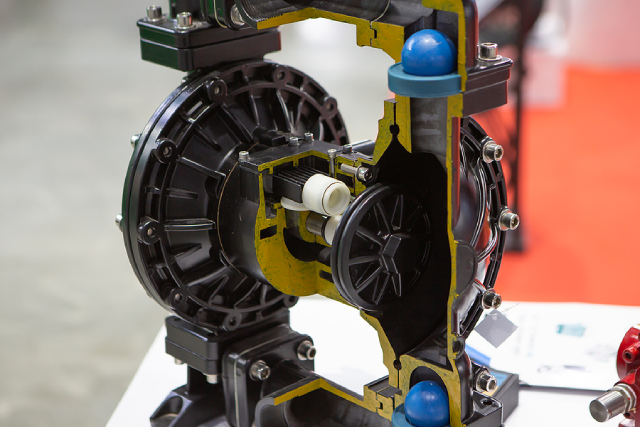Common Challenges In Electric Diaphragm Pump Applications

Electric diaphragm pumps have become indispensable in various industries, offering efficient and reliable solutions for fluid transfer tasks. From chemical processing to agriculture, these pumps play a pivotal role in ensuring smooth operations. However, like any machinery, they come with their set of challenges that can impede performance if not addressed promptly.
In this article, we delve into some of the common challenges encountered in electric diaphragm pump applications and explore strategies to mitigate them effectively.
1. Chemical Compatibility Issues
One of the foremost challenges faced in electric diaphragm pump applications is ensuring compatibility with the fluid being transferred. Certain chemicals can be corrosive or abrasive, leading to premature wear and tear of pump components. This not only affects the efficiency of the pump but also poses safety risks. To overcome this challenge, it's essential to select pumps constructed from materials that are resistant to the specific chemicals being handled. Regular inspection and maintenance are also crucial to detect any signs of degradation and replace components as needed.
2. Clogging and Blockages
Diaphragm pumps are susceptible to clogging, particularly when handling viscous or solid-laden fluids. Accumulation of debris or particulate matter can obstruct the flow, causing the pump to malfunction or even sustain damage. Employing proper filtration systems and strainers can help minimise the risk of clogging. Additionally, periodic cleaning and maintenance routines are essential to prevent the buildup of debris and ensure uninterrupted operation.
3. Diaphragm Wear and Tear
The diaphragm is a critical component of electric diaphragm pumps, responsible for creating the pumping action. Over time, diaphragms can degrade due to factors such as fatigue, chemical exposure, or mechanical stress. This can lead to leaks, loss of pressure, and diminished performance. Regular inspection of diaphragms for signs of wear, such as cracks or tears, is essential. Timely replacement of worn-out diaphragms is necessary to maintain optimal pump functionality and prevent costly downtime.
4. Air Leakage
Air leakage is a common issue in diaphragm pumps, adversely affecting efficiency and performance. Improper sealing or damaged gaskets can result in air leaks, reducing the pump's ability to generate sufficient pressure. Thorough inspection of sealing components and gaskets is essential to identify and rectify any leaks promptly. Tightening connections and replacing worn seals can help mitigate this challenge and ensure optimal pump performance.
5. Temperature Sensitivity
Electric diaphragm pumps may be sensitive to temperature fluctuations, particularly in applications where extreme temperatures are encountered. High temperatures can degrade pump components and affect the viscosity of the fluid being handled, while low temperatures can lead to issues such as freezing and viscosity changes. Selecting pumps designed to withstand the operating temperature range of the application is crucial. Additionally, insulation and heating systems can be employed to regulate temperature and minimise the impact on pump performance.
6. Power Supply Issues
Electric diaphragm pumps rely on a stable power supply for operation. Voltage fluctuations or power surges can damage the pump motor and control components, leading to costly repairs and downtime. Installing surge protection devices and voltage regulators can help safeguard the pump against power supply issues. Regular maintenance of electrical components, such as motor windings and capacitors, is also essential to ensure reliable operation.
Conclusion
Electric diaphragm pumps offer versatile solutions for fluid transfer applications across various industries, constituting everything you need to know about electric diaphragm pumps. However, they are not without their challenges. By addressing common issues such as chemical compatibility, clogging, diaphragm wear, air leakage, temperature sensitivity, and power supply issues proactively, businesses can maximise the efficiency and longevity of their pump systems.
For reliable pump solutions and expert guidance on overcoming application challenges, consider partnering with Winston Engineering. Whether you require air compressors, specialised pump systems, or wet and dry vacuum cleaners in Singapore, Winston Engineering offers a comprehensive range of products and services to meet your needs.

